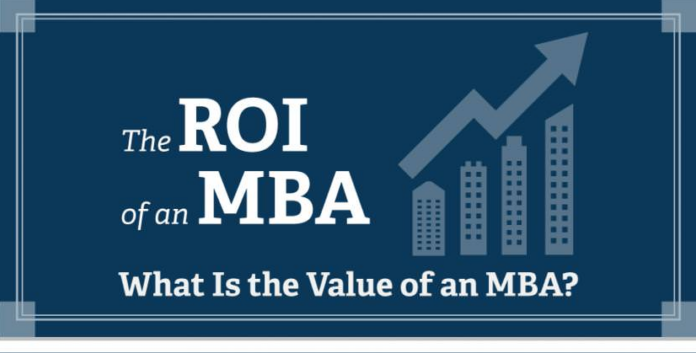Pursuing an MBA can be a significant decision in anyone’s career. This respected degree can enhance your skills and catapult your professional prospects to greater heights. Whether you’re eyeing that top management role or planning to start your venture, an MBA equips you with the knowledge and confidence to navigate the complex business landscape.
But, embarking on this journey requires thoughtful decision-making. Wondering what you should know before you dive in? We’re here to help you sift through your options and make an informed choice. Keep reading to discover more!
Choosing the Right MBA Program: It’s More Than Just a Name

Selecting the right MBA program isn’t a decision to be made lightly. Beyond the prestige associated with the name of a university, there are several aspects you should consider. For starters, reflect on your career goals. Do you want to specialize in a particular area, like finance or marketing, or aim for a more general management focus?
Next, consider the teaching methodology. Does the program offer practical exposure, real-world projects, and case studies to supplement theoretical knowledge? Also, consider the program duration. While traditional programs take about two years, an accelerated online MBA program can help you earn your degree faster, allowing you to return to the professional world equipped with new skills.
Another critical factor is the cost. Look at the return on investment, not just the upfront cost. Scholarships and financial aid can also make a big difference. Finally, consider the school’s culture and values – do they resonate with your own?
Making a well-informed decision when choosing an MBA program ensures that your investment of time, money, and effort is well-placed and is a stepping stone toward a successful future.
Curriculum Content: The Backbone of Your MBA Experience

An MBA program’s curriculum is its backbone, shaping the learning experience and directly impacting your future professional competencies. A robust MBA program should cover various subjects, from strategy and finance to marketing, operations, and human resources. It should also explore contemporary topics like digital innovation, data analytics, and sustainable business practices.
The curriculum should ideally balance theory and practice, offering real-world case studies, projects, and simulations. Courses that encourage critical thinking, leadership, and ethical decision-making are invaluable.
Faculty Expertise: Learning from the Best
Faculty members are not just teachers but mentors, guides, and the bridge between you and the corporate world. Learning from professors who are also experienced industry professionals can be a game-changer. They bring invaluable real-world insights into the classroom, enriching your understanding of business dynamics.
Furthermore, faculty members often have extensive professional networks, opening up internships, jobs, and mentorship opportunities. Therefore, researching the faculty’s industry experience, academic credentials, and teaching philosophy should be crucial to your MBA program selection process.
Career Services: Building a Bridge to the Business World

Career services play a vital role in facilitating this transition as you step from academia into the business world. Effective career services include career counseling, internship placement, job search assistance, and even alums networking events.
Workshops on resume writing, interview skills, and personal branding can give you an edge in the competitive job market. Furthermore, alum networks can provide mentorship and open doors to opportunities. Hence, the effectiveness and support of a school’s career services should be a critical consideration in your MBA journey.
Networking Opportunities: Forge Lifelong Professional Connections

An MBA program provides ample opportunities to network with like-minded individuals, industry experts, and accomplished faculty. These interactions can lead to lifelong professional relationships, offering immense benefits for career growth. Networking events, guest lectures, internships, and group projects allow you to meet diverse individuals, expanding your professional network.
Additionally, your peers in the MBA program can become future collaborators, business partners, or valuable connections in various industries. As the saying goes, “Your network is your net worth.” Therefore, considering the networking opportunities an MBA program provides is integral to your decision-making process.
Accreditation: A Mark of Quality and Assurance
Accreditation is crucial to a program’s quality and the institution’s commitment to high academic standards. An accredited MBA program assures that the curriculum meets specific quality standards a recognized accrediting body sets.
Employers often prefer graduates from accredited programs, ensuring that their education aligns with industry standards. Hence, check whether the MBA program you’re considering has accreditation from reputable bodies.
Flexibility and Learning Modes: Suiting Your Lifestyle
The mode and flexibility of learning are essential factors to consider, especially for working professionals or those with personal commitments. Traditional, full-time MBA programs may not fit everyone’s schedule or lifestyle. In such cases, options like an accelerated online MBA program can offer the flexibility to balance work, personal life, and education. These programs allow you to access course material anytime, anywhere, at your own pace. Additionally, accelerated programs can expedite your learning, enabling you to gain your degree faster and rejoin the workforce.
International Exposure: Broaden Your Perspectives
As businesses become more global, international exposure during your MBA can be a significant advantage. This could be in the form of international business courses, exchange programs, internships, or field trips to business hubs around the world.
Such experiences can help you understand different business cultures, broaden your perspectives, and make you more attractive to potential employers. So, while evaluating MBA programs, check for international exposure opportunities.
Return on Investment: Weighing the Cost and Potential Returns

An MBA can be a significant financial investment, so it’s essential to consider the potential return on investment (ROI). This includes looking at the cost of the program (tuition fees, living expenses, etc.) and weighing it against the potential earnings after graduation.
Additionally, consider factors like the average time it takes graduates from the program to secure jobs and the types of companies that hire them. Some programs also offer financial aid, scholarships, or work-study opportunities to help offset costs.
Final Words
Other than just earning a degree, getting an MBA is about gaining the skills, network, and opportunities that can boost your growth. Remember, the right MBA program for you depends on your personal and professional goals.









